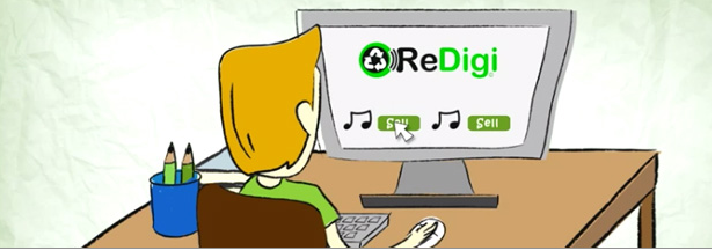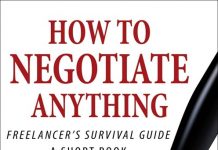Numerous websites have been reporting on the latest twist in the ReDigi case (for example, here on Paid Content). The case sets an important potential precedent for other business plans involving the sale of digital content. I know Amazon has contemplated a move into this area, and I wonder if they might be the ones with the deep pockets, not to mention the legal might, to try and fight this one.
The ruling was interesting in that, from what I’ve read, it didn’t oppose the sale of digital media in principle. Rather, it opposed the ‘first-sale doctrine’ defense that ReDigi was using to justify its model. The first-sale doctrine is what allows the second-hand print book market to flourish. It allows for someone who purchased an item legally to resell it without owing further compensation to whomever they bought it from. In other words, the publisher already got its cut on the print books when the first owner bought them. The first owner is then free to transfer his or her physical books to another person as they see fit.
So, what was the wrinkle in the ReDigi case? It was that in order for ReDigi to verify that you are the owner of a digital media purchase, and that you don’t in fact have a copy left over once you sell it through them, you have to copy your file to their server for authentication and processing. This creation of a new file is what disqualifies the sale as being covered under fair use, since fair use only applies to the item you actually bought!
* * *
It’s a tricky semantic argument to get your head around. But in essence, what they’re saying is that the file you download at purchase may in fact be covered by the first-sale doctrine. But since the file ReDigi is selling is a copy, it is therefore not your original purchase. And so while the sale might be defensible for other reasons, it’s not defensible under the first-sale doctrine.
I think a lot of the appeal process for this case will revolve around how Amazon (or ReDigi, or whomever takes this on) defines just what it is that customers buy when they buy an e-book or an MP3. If I bought a license and not a file, maybe that would be subject to different rules. But if the court is going to uphold this idea that the sale was of a certain specific file—to convert the physicality of a paper book into the physicality of a specific computer file created at the time of first download—then this might imperil Amazon’s plans for a used e-book market.
* * *
Personally, I think both sides have the wrong idea here. I don’t think the publishers should be trying to sell us a book at all. I think the only way to truly be fair about this is to turn the whole thing into a rental. Lower prices accordingly, have the rental expire after 30 days, and then make every eyeball pay.
But if the publishers and the authors and the bookstores are calling it the sale of a book, and charging full retail price for it, I think it’s understandable that people want to maintain their ‘book’ rights, and resell them if they wish.


































There’s no chance in heck that Amazon or anyone else can make the resale of digital goods legal through the court system. The copyright office has said first sale doesn’t pertain to digital goods, and now the courts agree.
If Amazon or Apple want the law changed, they should use their money to buy enough congressmen to change the law.
I’m not sure your rental model is the answer either, not without significantly lowering the price of a book (as in practically free). I’m a big re-reader, and paying over and over again would get expensive quickly. Plus there are non-fiction books I refer to frequently. I would hate that model, and as an author, I would seriously consider pulling my books from commercial sites and figuring out how to sell from my site. I want readers to read my books again and again without paying each time.
Now, if they wanted to rent under a Netflix model, I’d think differently.
I would never go for a rental model either. I buy when I have the money and read when I feel like it and I want to know that I always can refer back to the book later, if I choose. I like having a large pool of books in my TBR file already paid for that I can browse through and open up at any time.
I don’t care that I can’t resell my books. I have bookshelves full of paper books I could resell, but choose instead to keep. The only books I have ever resold are college text books – a much better application for a rental model.
I don’t object to having a rental model option, of course. But if that were the only option for digital content, I would seriously have to go back to the paper book – and of course that would mean buying far fewer books, as I did before e-readers were available.
I do think that the inability to resell content makes digital content somewhat less valuable, but in general, ebooks tend to be a little cheaper than print anyway – especially now that many agency agreements have been rewritten.